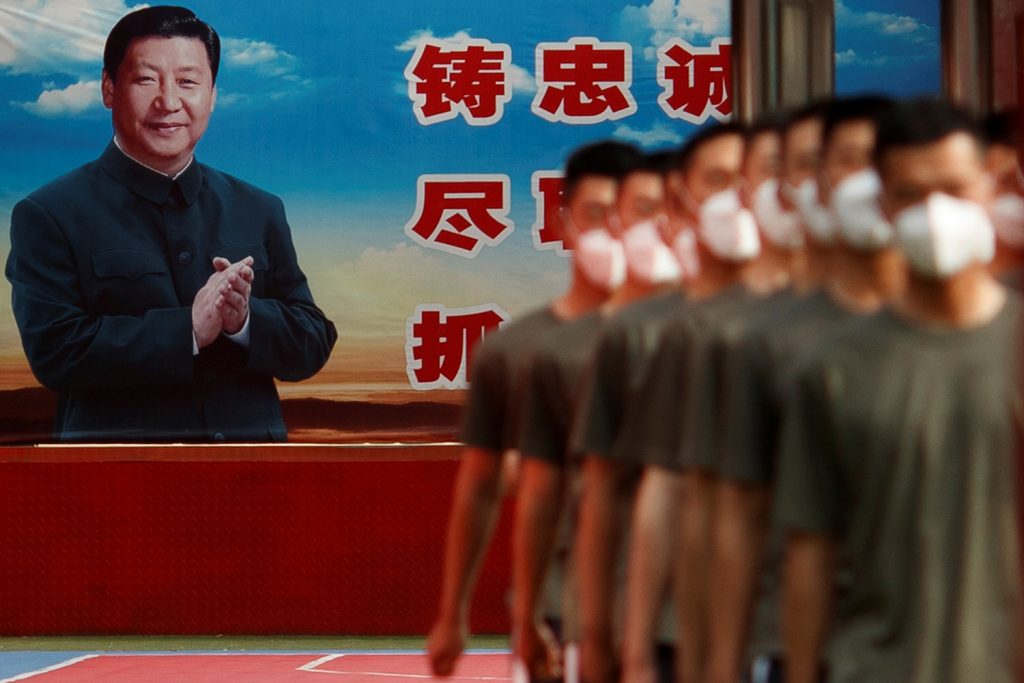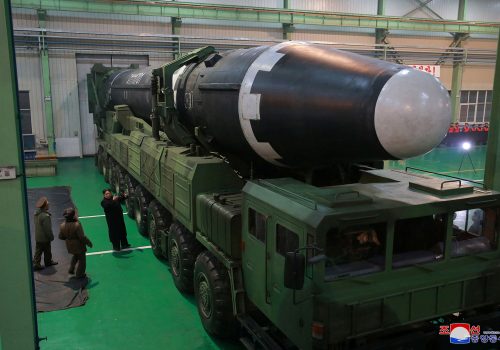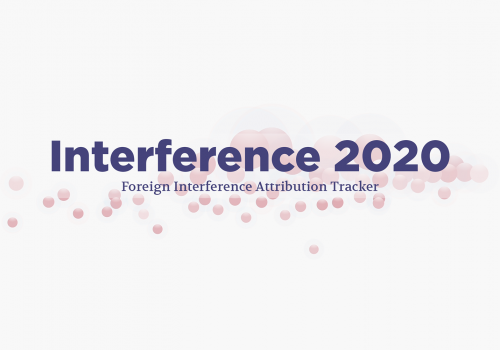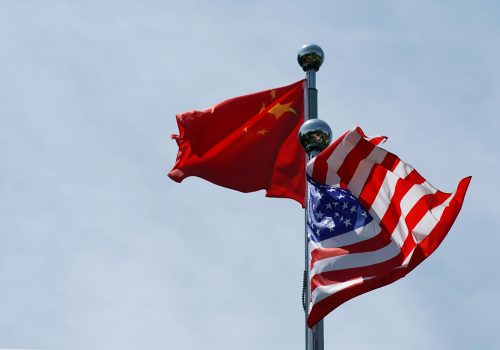As our new era of U.S.-Chinese major power competition accelerates, this week’s train wreck of an American presidential debate, followed more dramatically on Friday by President Trump’s positive Covid test and hospitalization, contribute both to the perception and reality of Beijing’s historic gains.
Chinese officials are unlikely to use this moment of unanticipated U.S. distraction for any sort of dramatic move that might provoke Washington, such as a military move on Taiwan’s independence to complement its recent actions to more fully control Hong Kong.
At a minimum, however, Chinese officials will embrace this period as additional, welcome “breathing space” to escalate their ongoing efforts across a range of fronts to build upon their momentum – from tightening party control over the Chinese private sector, to the accelerated development of a digital currency, to closing remaining technology gaps with the United States.
Recent events have also contributed to Chinese confidence that their autocratic single-party system, for all its failings and inefficiencies – is better designed to provide public needs and political stability than the disorder of American and Western democracy.
Get the Inflection Points newsletter
Subscribe to Frederick Kempe’s weekly Inflection Points column, which focuses on the global challenges facing the United States and how to best address them.
Though Chinese officials have been cautious this week in their reactions to both the presidential debate and President Trump’s illness, commentators that typically reflect official views left little doubt that President Xi Jinping regards this past week as a powerfully positive one for the Chinese team.
“Such a chaos at the top of U.S. politics reflects division, anxiety of U.S. society and the accelerating loss of advantages of the U.S. political system,” wrote Hu Xijin, editor of the English-language Communist Party mouthpiece, the Global Times.
Commenting later in the week, Hu wrote, “President Trump and the first lady have paid the price for his gamble to play down the COVID-19.” In a belated nod of concern for President Trump’s health, the Global Times pulled down the tweet. That doesn’t change the underlying message from Chinese officials to their global counterparts of how much better they believe their leaders and institutions have handled the COVID crisis.
Chinese leaders began more actively to question the durability of the American model, and the dangers in their dependence upon it, during the global financial crisis of 2008 and 2009. Chinese leaders now see 2020, burnished by their role as the first major economy to return to growth after Covid-19, has a chance to accelerate the global shift of power and influence in their direction.
Two congressional reports released this week in Washington — one from the House Intelligence Committee and the other from House Republicans on a China Task Force — underscored a bipartisan consensus that the United States could be falling behind China in a multidimensional contest for the future.
In any other news week, both would have gained more attention for their findings and recommendations.
“What we found was unsettling,” wrote Adam Schiff, the Democrat who chairs the House Intelligence Committee, in Foreign Affairs on the findings of a two-year study that concluded that U.S. intelligence agencies “are not ready – not by a long shot” to tackle the Chinese challenge.
“China itself views competition with the United States unfolding in ideological and zero-sum terms,” wrote Schiff. He called for intelligence agency recruitment of a whole new set of individuals to develop skill sets to take on China’s focus on “new domains, such as space and cyber, that would redefine existing conceptions of how a twenty-first century war would unfold, extending the battlefield to our political discourse, mobile devices, and the very infrastructure that modern digital communications and communities rely upon.”
House Republicans Kevin McCarthy and Michael McCaul, writing in National Review about their task force’s findings, warned, “the United States stands to lose the future to today’s Communist superpower.” Their plan calls for a doubling of federal research and development funding for artificial intelligence and quantum computing over the next two years, ensuring that America leads both in setting international 5G standards and the fabrication of advanced semiconductor chips.
For its part, China is accelerating comprehensive efforts across political, technological and economic domains to ensure that they translate 2020′s disruptions into historic gains.
President Xi has been nationalizing and taking measures to ensure party control over the actions of private enterprises, which provide 60% of the country’s economic output and 80% of its employment. At the same time, he is considering blacklisting foreign enterprises, and has jailed a prominent, uncooperative Chinese CEO, designed to send a message to all others.
The Chinese Communist Party continues to bet big on internationalizing the RMB, where it still has had marginal success, and in winning the race for an internationalized digital currency, where international experts believe it may be leading. It is beta testing its digital currency in four cities, supported by the country’s vast implementation of digital payments systems.
On the technology front, Chinese officials have been using U.S. lists of embargoed and controlled technologies as a crib sheet from which they are sharpening their own focus. Top of their priority list are semiconductor chips and computer software, electromagnetic technology, artificial intelligence, quantum computing, 5G, pharma, biotech, aerospace, robotics and automation, green technologies and the Internet of Things.
There’s a tendency in today’s Washington to underestimate Chinese weaknesses: Its lack of consumption as the economy recovers, its increasing debt issues, a graying population, international pushback against its bullying diplomacy, and its risky economic bets on its ambitious Belt and Road Initiative.
Yet a lot of weakness can be forgiven when your competitor keeps scoring what soccer fans refer to as “own goals.” Chinese officials see President Trump’s Covid contraction as a self-inflicted wound, given President Xi’s elaborate and painstaking efforts to avoid infection and wean his country from Covid.
Irrespective of how and when President Trump recovers and who wins November’s U.S. elections, President Xi is focused on how this period can serve China’s long game and his historic legacy.
This article originally appeared on CNBC.com
Frederick Kempe is president and chief executive officer of the Atlantic Council. You can follow him on Twitter @FredKempe.
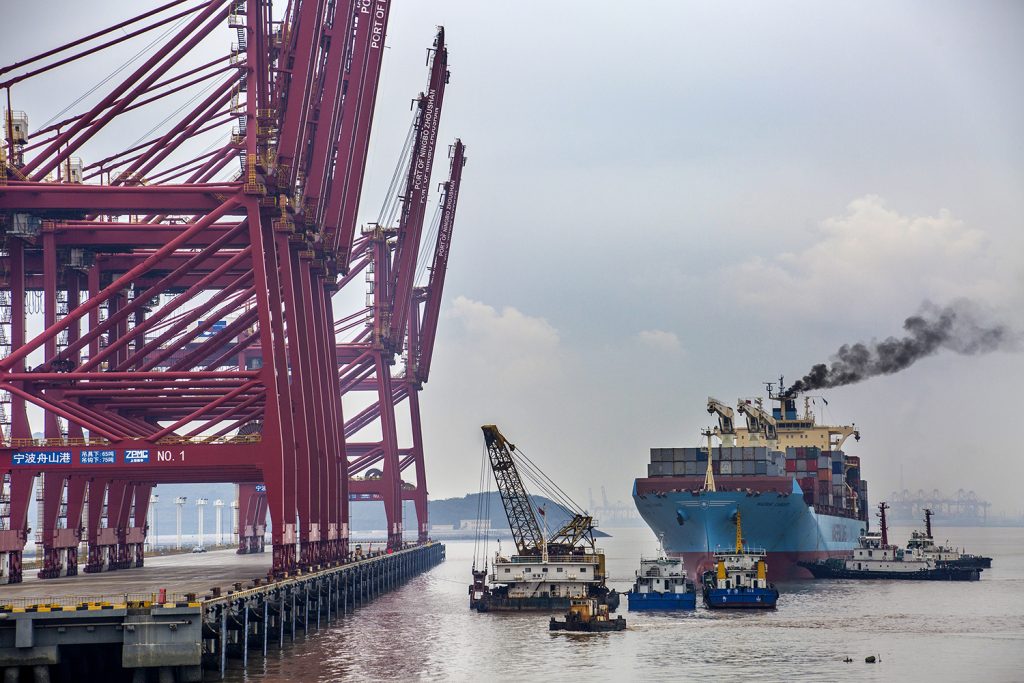
THE WEEK’S TOP READS
This week’s top reads include looks at this week’s two ground-breaking congressional reports on China and Wall Street Journal articles on Beijing’s under-recognized weaknesses.
Continuing on the theme of how to prepare the United States for our new era of major power competition, Andrew Michta writes for the Heritage Foundation on why alliances will play a crucial role in shaping a geostrategic situation that has turned more disadvantageous to the United States. Rebecca Lissner and Mira Rapp-Hooper see the biggest historic opportunity to shape world affairs since the Cold War or World War II, but only if the next U.S. president discards nostalgia for the past U.S. leadership of the liberal international order and a defeatist international retrenchment in the future.
This week’s must-read is an interview by Der Spiegel, the German news magazine, with Russia’s opposition leader Alexei Navalny on why he’s certain President Vladimir Putin is responsible for his poisoning — and why he’ll return to Russia anyway.
#1. COUNTERING CHINA
The U.S. Intelligence Community Is Not Prepared for the China Threat
Adam Schiff / FOREIGN AFFAIRS
It’s Time to Get Serious about the People’s Republic of China
Kevin McCarthy and Michael McCaul / NATIONAL REVIEW
Two groundbreaking reports out of Congress this week on China were little noticed but they are must-reading for anyone tracking the shifting thinking in Washington on Beijing.
“Our nation’s intelligence agencies are not ready—not by a long shot,” writes Adam Schiff, who serves as chairman of the House Permanent Select Committee on Intelligence. “Absent a significant realignment in resources and organization, the United States will be ill prepared to compete with China on the global stage for decades to come.” Read More →
In National Interest, Republican House Minority Leader Kevin McCarthy and Representative Michael McCaul deliver a similar warning, writing that “the United States stands to lose the future to today’s Communist superpower” unless it moves to “confront their global malign ambitions head on.” Read More →
#2. CHINA’S RISKS
The Imperial Overreach of China’s Belt and Road Initiative
Jonathan Hillman / THE WALL STREET JOURNAL
A Tale of Two Chinese Economies
The Editorial Board / THE WALL STREET JOURNAL
China, for all its economic advantages and impressive recovery from the pandemic still has significant weaknesses to contend with, find Jonathan Hillman and the editorial board in the Wall Street Journal.
Central to Xi’s central foreign policy and economic development plans is the Belt and Road Initiative. Xi’s legacy therefore largely depends on its success. Hillman argues that China’s enormous infrastructure project is “poorly defined and horribly mismanaged” and that “China is walking into a trap of its own design.” Read More →
The editorial board of the WSJ finds issues with China’s apparent miracle economic recovery. In reality, it writes, Beijing’s story of an economic rebound is two-faced. While manufacturing and exports have accounted for a modest growth in its economy, its consumption is in tatters.
“Beijing destabilized the world once by failing to control the early outbreak of the novel coronavirus and lying about it,” writes the Wall Street Journal. “The risk is that the fallout from an unbalanced economic recovery could trigger new instability.” Read More →
#3. THE U.S. AND ITS ALLIANCES
U.S. Alliances: Crucial Enablers in Great-Power Competition
Andrew A. Michta / The Heritage Foundation
As the U.S. readies its long-term plans to manage China, it should begin its work with a restoration, reinvigoration and remodeling of alliances.
Writing for Heritage Foundation, Andrew Michta doesn’t recite the ritualistic support for NATO and our Asian alliances, but rather puts them in the context of a situation today. “The United States today is at a geostrategic disadvantage that is significantly greater” than anything it faced during the Cold War, he argues.
He outlines in some detail how NATO and Asian alliances could be shaped to deal with the emerging challenges. He also soberly concludes that if NATO unravels and if Asian partners fall out of their alliances with the U.S. “the entire Pacific Ocean west of Hawaii would become a contested space with the United States directly exposed to the risk of being pushed into its own hemisphere.” Read More →
#4. “WORLD-ORDERING OPPORTUNITY”
A Foreign Policy for the Day After Trump
Rebecca Lissner and Mira Rapp-Hooper / FOREIGN AFFAIRS
Authors Rebecca Lissner and Mira Rapp-Hooper argue in Foreign Affairs that although it hasn’t been much discussed, also on the ballot this November is “the future of the United States’ role in the world.”
“The current period of disruption and turmoil presents the greatest world-ordering opportunity since the end of the Cold War – and perhaps since World War II,” they write. “The United States must lead in in turning the present destruction into a moment of creation.”
Their compelling prescription is for “an open world,” one that neither nostalgically tries to hang onto American dominance of the eroding liberal international order, which can’t be preserved, nor fashionable arguments in favor of isolationist retrenchment, which are defeatist and damaging. Read More →
#5. NAVALNY’S POISONING AND DETERMINATION
“I Assert that Putin Was Behind the Crime”
Benjamin Bidder and Christian Esch / DER SPIEGEL
This interview is Der Spiegel at its best.
A month and a half after Alexei Navalny was poisoned in Russia by the nerve agent Novichok that nearly killed him, Russia’s best known opposition figure sat down with the Germany’s leading news magazine to talk about his experience, why he has no doubt Putin is responsible for the crime, and his continued determination to fight for political freedom in his country.
On who was responsible for his poisoning, Navalny answers, “I assert that Putin was behind the crime, and I have no other explanation for what happened. I’m not saying this out of self-flattery but based on the facts. The most important fact is Novichok. The order to use or produce it can only come from two men – the head of the FSB or the head of the SWR, the foreign intelligence office.”
On why he’s determined to return to Russia, Novalny says, “Not going back would mean that Putin has won and achieved his goal. And my job now is to remain the guy who isn’t afraid. And I’m not afraid! When my hands shake, it’s not from fear – it’s from this stuff. I would not give Putin the gift of not returning to Russia.” Read More →
PERSON OF THE WEEK
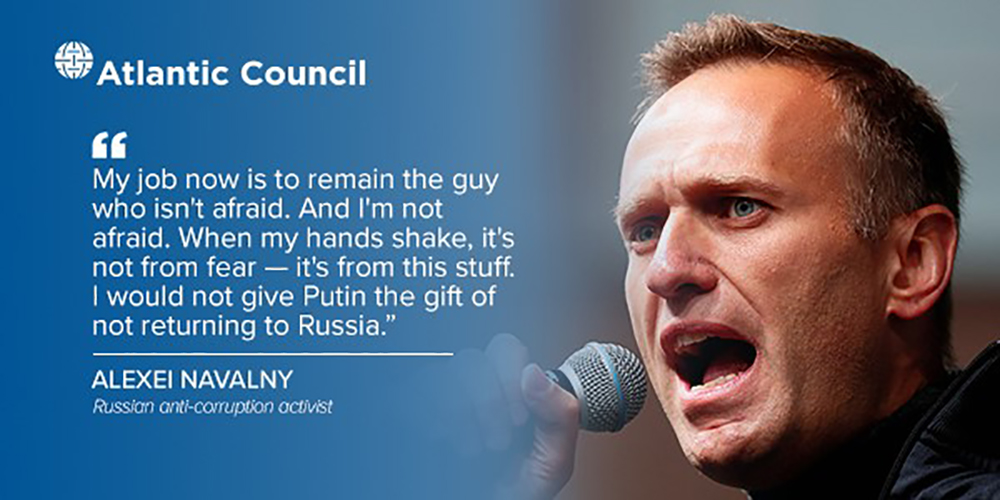
ATLANTIC COUNCIL TOP READS
Image: Paramilitary Police officers march in formation near a poster of Chinese President Xi Jinping at the gate to the Forbidden City on the opening day of the National People's Congress (NPC) following the outbreak of the coronavirus disease (COVID-19), in Beijing, China May 22, 2020. REUTERS/Thomas Peter
